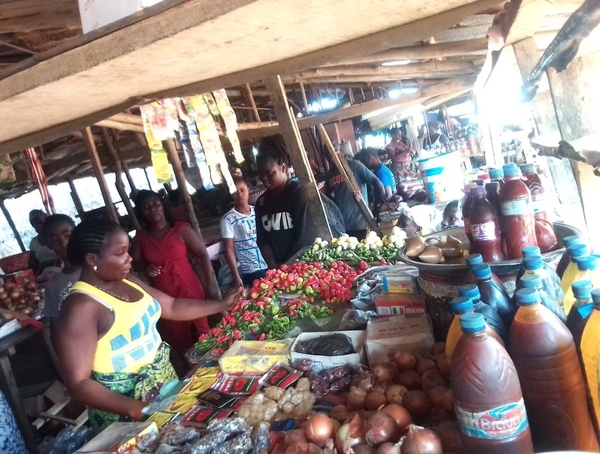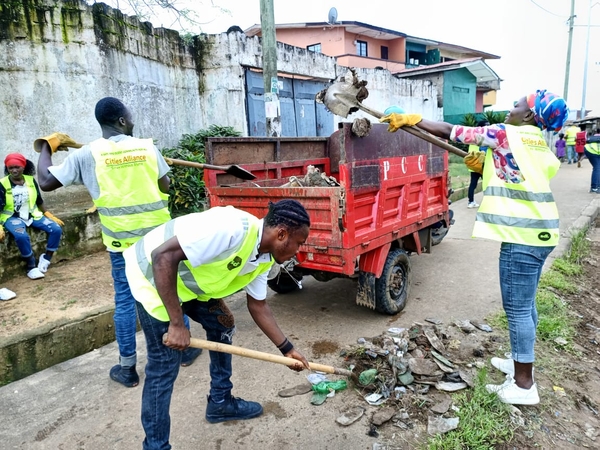- Who We Are
- How We Work
- Regional / Country Initiatives
- Legacy
- Core Themes
- Working Groups
- Portfolio & Results
- Newsroom
- Resources
Liberia: Empowering Communities to Address Urban Challenges

Project Overview
With a population exceeding its planned capacity, Monrovia's unplanned slum communities struggle with rapid population growth, internal migration, and limited expansion options due to coastal geography. Political, economic, and healthcare transitions remain significant hurdles to community resilience, as demonstrated by the Covid-19 pandemic, the Ebola epidemic, and civil conflict.
The YMCA of Liberia and the Federation of Liberia Urban Poor Savers (FOLUPS) have been working with multi-country stakeholders to support and empower communities to effectively respond to and address these shocks.
The project aims to combat these issues through community engagement, peer education, and collaboration with local stakeholders. Additionally, the Subject to Citizen (S2C) concept empowers young people through vocational training and skill development, improving their livelihood opportunities and creating socio-economic resilience while fostering their active participation in nation-building endeavours.
This project is part of the Building Resilience in Informal Settlements Programme, a partnership between Cities Alliance and Slum Dwellers International (SDI), funded by the Swedish International Development Cooperation Agency (Sida), to support civil society organisations working in informal settlements.

Project Results: 2022-2024
A total of 60 federation members have successfully completed training, alongside an additional 60 individuals from informal settlements. This initiative aims to empower community members with essential skills and resources.
To support hygiene practices, 60 hand-washing buckets were distributed. Additionally, 360 disinfectants were provided to targeted communities, resulting in 2,408 community members using hand-wash buckets before and after the use of facilities, with 1,828 females and 580 males benefiting.
A series of 6 waste disposal campaigns were conducted, involving 60 trained peer educators, 6 local leaders, and 6 Civil Society Organizations (CSOs). This collaborative effort aims to promote proper waste disposal practices and environmental stewardship within the communities.
Maintenance support was extended to 50 public facilities, including toilets and water kiosks, across 6 settlements. This initiative ensures the sustainability and functionality of essential community infrastructure.
In support of advocacy and communications activities, 1,200 copies of Information, Education, and Communication (IEC) materials were printed. These materials serve as valuable resources for raising awareness and disseminating important information within the targeted communities.

Improved Livelihood through Vocational Training in Liberia
A cluster leader in the federation has greatly enhanced her livelihood through vocational training provided by the project. She actively participated in various community initiatives, including climate risk profiling and sanitary material distribution. Her involvement as a Peer Educator included cleanup campaigns, awareness efforts and promoting the reporting of sexual and gender-based violence cases.
She later enrolled in vocational training, choosing catering to advance her existing skills. The comprehensive programme covered pastry and food preparation. Upon completion, she received a certificate and a startup kit with essential catering supplies. Now, she provides catering services to her community, while the income she generates supports her family by covering essential expenses such as school fees, rent and daily needs, enhancing their economic resilience.
Key Achievements: 2022-2024
- 19 savings groups and 534 savers supported
- 226 youth members mobilised and supported
- 222 people supported through networking and training to address climate change or to conserve biodiversity
- 144 people supported to better adapt to the effects of climate change
- 2 cities and 21 settlements profiled and 38 settlements enumerated
- 12 settlement level information forums or campaigns
- 26 city or national level advocacy campaigns conducted
- 7 regional or national level federation leadership meetings were held
- 4 peer-to-peer learning exchanges with 109 individuals
